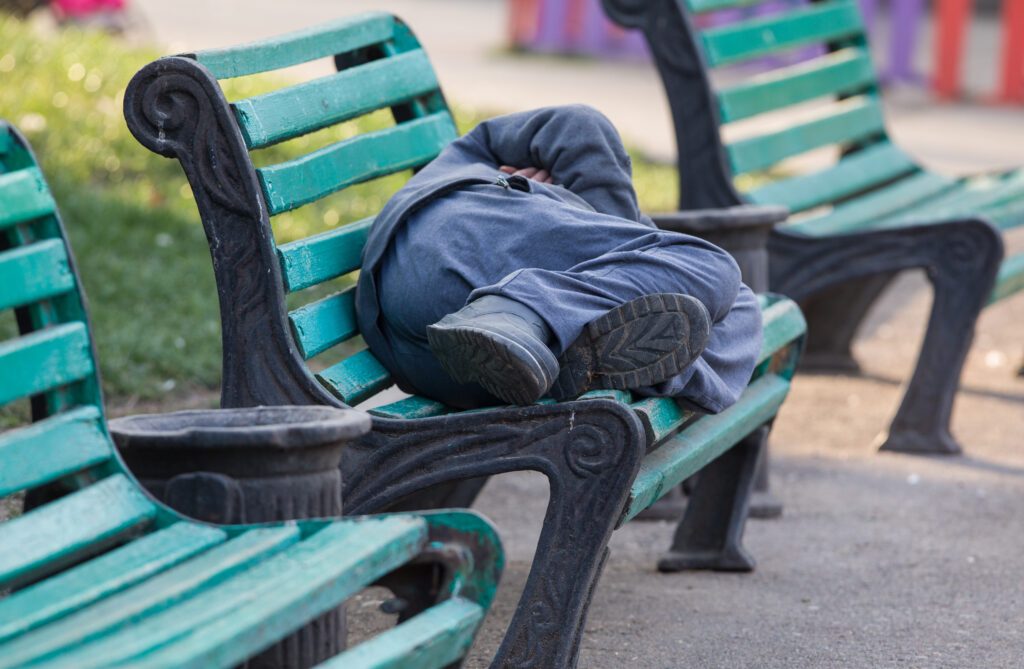
The Museum says “the Labour UK Government has failed to deliver on its early promises” as it reported 1,611 deaths in 2024 of people experiencing homelessness. Last year, it reported 1,474 deaths for 2023, and 1,313 in 2022.
The statistics include people sleeping rough as well as those placed in emergency accommodation, and other insecure settings. Each fatality was verified by a freedom of information request, coroners’ report, charity or family member.
“With heavy hearts, we report the deaths of 1,611 people who died whilst homeless in 2024.
Whilst it is positive that local authorities and Safeguarding Adult Boards appear to be taking the issue more seriously, with better reporting and evidence of improved local partnership working to prevent deaths, turning the tide on this enormous loss of life needs more than better counting.
We remember with love all those who died and continue our work in solidarity with bereaved loved ones and the homeless community.”
“It is obscene that in 2025, the average life expectancy of someone sleeping rough in Wales is 45 for a man and 43 for a woman.
This number has not moved since the 90s.
To improve the lives of people on the streets in Wales, we have got to have sensible conversations about health inclusion and mental health, sensible conversations about drugs and sensible policy to tackle the housing deficit.
The Wallich advocates for taking health services to people on the streets – we are working with health boards like Cwm Taf and Swansea Bay UHB, taking our vans out with specialist nurses to treat wounds, blood borne viruses, sexual health, COPD and more.
A further rollout by Welsh health boards will help improve the quality of life of people experiencing homelessness.
Drug-related deaths are completely avoidable if we deliver harm reduction through our policies and in our practice.
For years, The Wallich has called for an overdose prevention centre in Wales, where people can use safely.
When people who use drugs are treated using a health approach, instead of being treated as criminals, lives can be saved.”
The Wallich will launch its annual winter campaign on World Homelessness Day on Friday and will work diligently to shine a light on homelessness in Wales.
On 9 October, Museum of Homelessness and frontline groups including the Simon Community, Streets Kitchen and The Outside Project will hold a vigil outside Downing Street from 6pm – 7.30pm.
People are invited to light a candle there or at home and post it online with the hashtag #MakeThemCount – Museum of Homelessness @Our_MoH
In Cardiff, Vine Community Church are hosting an event which aims to inform, inspire and remember on Sunday 12 October at 11am. It will include a performance from the local Choir With No Name.
The picture across the UK is varied. The worst rises in homelessness deaths were observed in the South-West, East Midlands and the East of England. However, both Scotland and Wales have seen decreases in deaths.
Drug and alcohol-related deaths predominate with 44% of all deaths being drug and alcohol-related.
In a year-long investigation we have seen firsthand the struggles faced by communities wrestling with an influx of new drugs.
| Location | 2024 deaths | 2023 deaths | 2022 deaths |
| Northern Ireland total | 211 | 155 | 205 |
| Belfast | 56 | 49 | 56 |
| Antrim and Newtownabbey | 19 | 16 | 30 |
| Derry and Strabane | 16 | 6 | 10 |
| Scotland total | 168 | 206 | 157 |
| Glasgow | 31 | 51 | 50 |
| Edinburgh | 23 | 41 | 40 |
| Wales total | 90 | 97 | 76 |
| Cardiff | 23 | 35 | 22 |
| Swansea | 10 | 10 | 16 |
| Bridgend | 11 | 2 | Not held |
| England total | 1139 | 983 | 875 |
| London | 326 | 310 | 295 |
| Manchester | 16 | 18 | 21 |
| Brighton and Hove | 36 | 36 | 43 |
| Nottingham | 22 | 11 | 7 |
| Leicester | 10 | 8 | 4 |
| Cambridge | 14 | 15 | 11 |
| Bristol | 32 | 37 | 24 |
| Exeter | 21 | 8 | 8 |
| Bournemouth, Christchurch &
Poole |
18 | 20 | 10 |
“Angela Rayner and Rushanara Ali leaving their posts in 2025 lays bare the lack of leadership on homelessness and housing at all levels of government in the face of the worst homelessness crisis this country has ever seen. Our investigation shows how homeless people continue to be deeply failed. We are calling for urgent action from the government to alleviate this crisis.”
The Dying Homeless Project uses information from coroners’ enquiries, media coverage, family testimony and freedom of information requests to verify details of each case.
The Museum of Homelessness has gathered data since 2019 in the absence of the ONS figures on the deaths of people who are homeless. This means that the project is currently the only published record of homeless deaths in the UK.
About the Dying Homeless Project — Museum of Homelessness
Museum of Homelessness is based in Finsbury Park, North London where it opened its first permanent site in 2023. You can find out more about the museum at www.museumofhomelessness.org